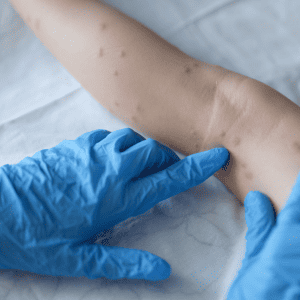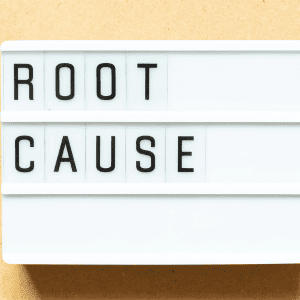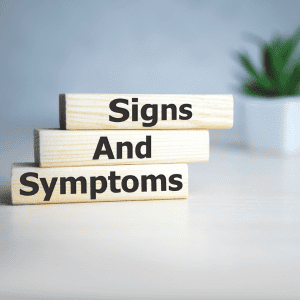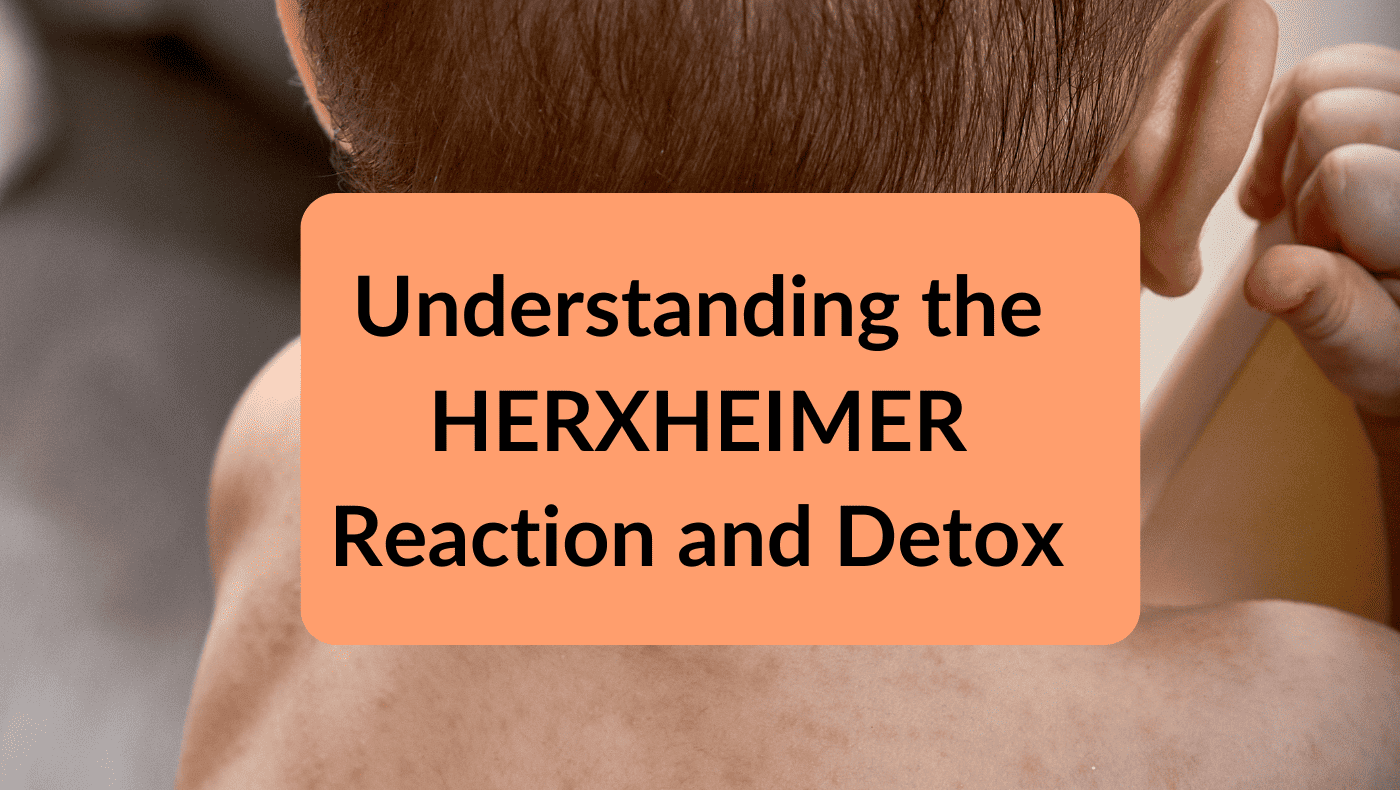Last updated on March 13th, 2025 at 06:56 am
Detox diets and cleanses have become increasingly popular in recent years as a way to rid the body of toxins and promote overall health.
However, these detox programs can sometimes lead to an uncomfortable phenomenon known as the HERXHEIMER reaction.
In this blog post, I will explore what exactly is the HERXHEIMER reaction, its potential causes, and how to minimize its effects during a detox program.
What is the HERXHEIMER Reaction Detox?
 The HERXHEIMER Reaction, often referred to as Herx, is a short-term detoxification reaction in the body. The HERXHEIMER reaction, also known as a “healing crisis” or “die-off reaction,” occurs when toxins are released at a faster rate than the body can eliminate them.
The HERXHEIMER Reaction, often referred to as Herx, is a short-term detoxification reaction in the body. The HERXHEIMER reaction, also known as a “healing crisis” or “die-off reaction,” occurs when toxins are released at a faster rate than the body can eliminate them.
This can happen with any type of detox, whether it be through a strict diet or the use of supplements and herbs. This is a normal part of the process and is an indication that parasites, fungi, viruses, bacteria, or other pathogens are being killed off. In reality, the symptom clusters brought on by a detoxification process are often expected and temporary.
Taking breaks or reducing dosage throughout the treatment can help to minimize Herxheimer reactions and prevent them from becoming too intense.
In some cases, it is helpful to take less of the protocol or divide doses over time instead of overloading the body all at once. These herxheimer reactions are typically temporary and should subside as the detox progresses.
Disclosure: There are affiliate links in this post. If you click the link and buy something, I might get a commission at no additional cost to you! This is what keeps this blog running so consider using these links if you decide to try any of my recommendations.
Why is HERXHEIMER’s Reaction Significant?
The significance of HERXHEIMER Reaction lies in the fact that it is a clear bodily response to the detoxification process, acting as an indicator that the body is eliminating toxins.
However, managing these symptoms is crucial to ensure a smooth and safe detox journey, as too intense or prolonged HERXHEIMER reactions can be harmful to the body.
It is also important to note that HERXHEIMER reactions vary from person to person and can last anywhere from a few hours to a few days.
Therefore, it is important to be aware of the signs and symptoms so that you can take the necessary precautions.
Some strategies for managing HERXHEIMER reactions include drinking lots of fluids, getting plenty of rest, and taking anti-inflammatory medications.
Additionally, some supplements such as binders, glutathione, vitamin C, and Alka seltzer gold can be used to help reduce the severity of HERXHEIMER reactions.
Finally, remember that even though these reactions can be unpleasant, they are actually a sign that your body is responding positively to the detoxification process.
We just want to make sure that we don’t overtax the body by going too fast and giving too much of something.
It is important to stay positive and focus on the end goal of improved health.
What Causes the HERXHEIMER Reaction and How Does it Work?
 The HERXHEIMER Reaction typically occurs when toxic substances or metabolites that are stored in the body are released into the bloodstream and body tissues faster than the body can eliminate them.
The HERXHEIMER Reaction typically occurs when toxic substances or metabolites that are stored in the body are released into the bloodstream and body tissues faster than the body can eliminate them.
This sudden influx of toxins can shock the body, triggering an immune response that results in inflammation and a variety of symptoms.
The primary catalysts for the HERXHEIMER Reaction are detoxification processes where harmful microorganisms in the body are killed off or die due to successful treatment.
As these microorganisms die, they release endotoxins (internal toxins) into the bloodstream and body tissues.
The body’s detoxification systems – including the liver, kidneys, and lymphatic system – work to filter out and remove these toxins.
However, when the volume of toxins exceeds the body’s capacity to eliminate them, this can provoke the HERXHEIMER Reaction.
Symptoms and Effects of the HERXHEIMER Reaction
Individuals undergoing detoxification can experience a wide variety of symptoms during a HERXHEIMER Reaction.
Common symptoms include fever, chills, headache, muscle aches, and skin rashes. Others may feel fatigue, joint pain, and nausea.
In some cases, individuals may experience psychological symptoms such as anxiety, confusion, and irritability.
The intensity and duration of HERXHEIMER Reaction symptoms can vary greatly among individuals.
Factors influencing the severity of symptoms can include the overall health and vitality of the individual, the type and level of toxins in the body, and the body’s detoxification capabilities.
It’s important to note that while the symptoms of the HERXHEIMER Reaction may seem discouraging, they are typically a sign that the detoxification process is effectively eliminating toxins from the body.
However, persistent or severe HERXHEIMER Reaction symptoms should not be ignored and can warrant professional consultation.
Recognizing and Differentiating HERXHEIMER Reaction Symptoms
 Recognizing the symptoms of a HERXHEIMER Reaction is vital to effectively manage and mitigate its effects during a detox regimen.
Recognizing the symptoms of a HERXHEIMER Reaction is vital to effectively manage and mitigate its effects during a detox regimen.
As stated earlier, common symptoms can vary widely among individuals but generally encompass physical discomforts such as fever, chills, headaches, muscle aches, and skin rashes.
Other potential symptoms include fatigue, joint pain, and nausea. Differentiating HERXHEIMER Reaction symptoms from those of other health issues is crucial.
The key distinguishing factor is their onset and alignment with the start of a detox program or treatment regimen. Symptoms typically appear within a few hours to days after the initiation of a cleanse or detox, and they often occur in clusters. Furthermore, the progression of the HERXHEIMER Reaction is relatively predictable, with symptoms peaking and then gradually subsiding as the body continues to eliminate toxins.
Still, it’s important to note that any persistent or severe symptoms, even if they align with the HERXHEIMER Reaction profile, should prompt consultation with a healthcare professional. This helps ensure that these symptoms are indeed a part of the detoxification process and not indicators of a different, potentially serious, health concern.





0 Comments